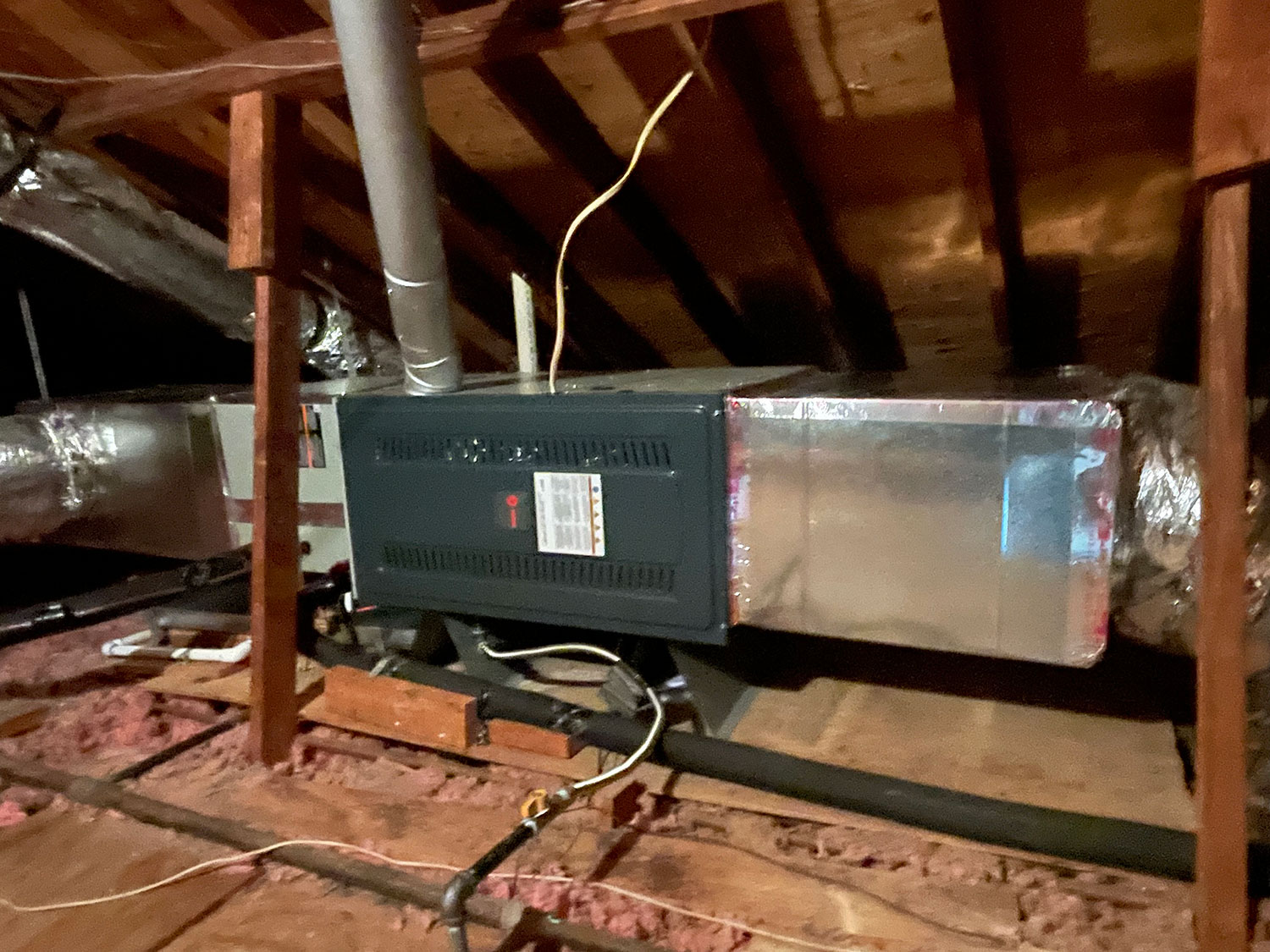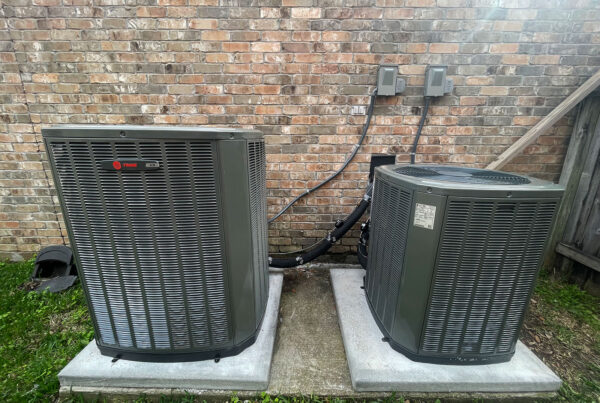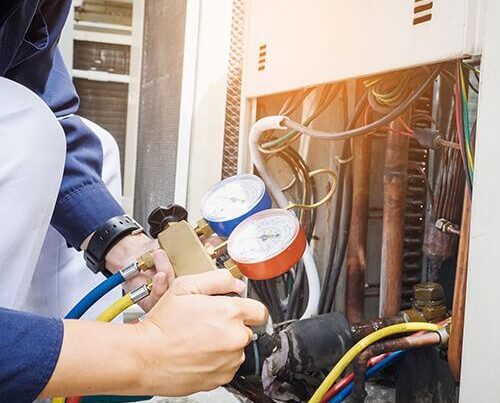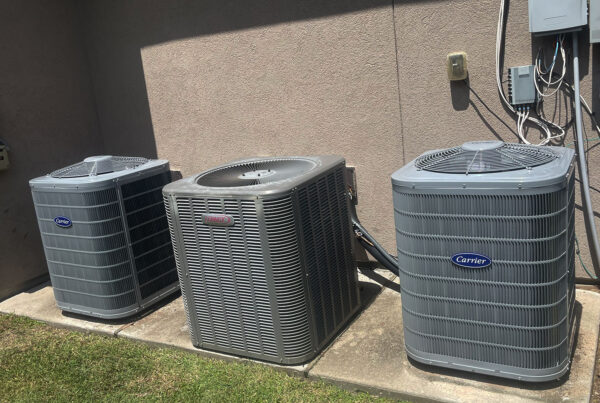As a homeowner in Katy, Texas, you know that your HVAC system is more than just a luxury—it’s a necessity. With the scorching summer heat and the occasional chilly winter nights, your HVAC system plays a crucial role in keeping your home comfortable year-round. However, like any mechanical system, your HVAC unit requires regular maintenance and, sometimes, repairs to function at its best. Ignoring small issues can lead to costly breakdowns, uncomfortable living conditions, and even health risks. In this article, we’ll explore five clear signs that indicate your HVAC system needs repair and why it’s essential to address these issues promptly.
1. Unusual Noises: The Sound of Trouble
Your HVAC system is designed to operate smoothly and quietly. While it’s normal to hear a low hum or soft whoosh as air circulates through your home, any unusual noises should raise a red flag. Here are some sounds you might hear and what they could mean:
- Banging or Clanking: If you hear a loud banging or clanking sound, it could indicate that a part has come loose or a component is out of balance. This might be a fan blade, motor part, or another mechanical element that, if left unchecked, could cause further damage to the system.
- Squealing or Screeching: A high-pitched squeal often points to a problem with the motor, such as a worn-out belt or bearings. This issue needs immediate attention to prevent the motor from burning out, which could lead to a more expensive repair.
- Rattling: Rattling noises might suggest that debris has entered the system, or it could be a sign of loose parts. This could also indicate that your system is aging and parts are beginning to deteriorate.
- Buzzing: A buzzing sound may be due to electrical issues such as a failing capacitor, faulty wiring, or issues with the compressor. Electrical problems are serious and require immediate professional intervention.
Why It Matters:
Unusual noises are your HVAC system’s way of telling you that something is wrong. Ignoring these sounds can lead to more severe damage, higher repair costs, and even a complete system breakdown.
2. Inconsistent Temperatures: A Sign of Uneven Performance
One of the primary functions of your HVAC system is to maintain a consistent and comfortable temperature throughout your home. If you notice that some rooms are warmer or cooler than others, or if the system struggles to reach the set temperature, it could indicate a problem. Common causes of inconsistent temperatures include:
- Blocked or Leaking Ducts: If your ducts are blocked or leaking, the conditioned air won’t be evenly distributed throughout your home. This can result in some rooms feeling too hot or too cold.
- Thermostat Issues: A malfunctioning thermostat can lead to inaccurate temperature readings, causing your HVAC system to overheat or underheat certain areas of your home.
- Aging or Failing System: As your HVAC system ages, its efficiency naturally decreases. If your system is older, it may struggle to maintain consistent temperatures, signaling that it’s time for a repair or replacement.
Why It Matters:
Inconsistent temperatures not only make your home uncomfortable but also indicate that your HVAC system is working harder than it should. This extra strain can lead to higher energy bills and a shorter lifespan for your system.
3. Increased Energy Bills: Paying More for Less Comfort
A sudden spike in your energy bills is a strong indication that your HVAC system is not operating efficiently. Several factors can contribute to increased energy consumption, including:
- Dirty or Clogged Filters: When filters are clogged with dust and debris, your HVAC system has to work harder to push air through, leading to increased energy usage.
- Poor Insulation: If your home isn’t properly insulated, your HVAC system will have to work overtime to maintain a comfortable temperature, driving up your energy bills.
- Worn-Out Components: As components within your HVAC system wear out, they become less efficient, requiring more energy to perform the same tasks.
- Short Cycling: If your HVAC system is turning on and off frequently, a process known as short cycling, it consumes more energy. Short cycling can be caused by thermostat issues, refrigerant leaks, or an oversized system.
Why It Matters:
High energy bills are not only a financial burden but also a sign that your HVAC system is under strain. Addressing the root cause of the problem can restore efficiency, lower your energy costs, and extend the life of your system.
4. Poor Air Quality: When Your HVAC System Makes Breathing Difficult
Your HVAC system plays a critical role in maintaining indoor air quality. If you notice a decline in air quality, it could be a sign that your system needs attention. Symptoms of poor air quality include:
- Increased Dust and Debris: If you find that your home is dustier than usual, it could be a sign that your HVAC system is not filtering air properly. This might be due to clogged filters, dirty ducts, or a failing air purifier.
- Unpleasant Odors: Strange smells emanating from your HVAC system can indicate various issues. A musty odor might suggest mold growth within the system or ducts, while a burning smell could signal an electrical problem.
- Allergy or Respiratory Issues: If you or your family members are experiencing increased allergy symptoms or respiratory issues, it could be due to contaminants circulating through your HVAC system. Pollen, mold spores, and other allergens can accumulate in your system and be distributed throughout your home.
Why It Matters:
Poor air quality can negatively impact your health, especially if you have asthma, allergies, or other respiratory conditions. Ensuring that your HVAC system is in good working order will help maintain a clean and healthy indoor environment.
5. Frequent Repairs: The Warning Signs of a System on Its Last Legs
While occasional repairs are part of maintaining an HVAC system, frequent breakdowns or repairs are a clear sign that your system may be nearing the end of its lifespan. Some common issues that may require repeated repairs include:
- Refrigerant Leaks: If your system consistently needs refrigerant top-offs, it could indicate a leak that requires professional attention. Over time, refrigerant leaks can lead to compressor failure, which is an expensive repair.
- Capacitor or Motor Failures: Repeated issues with the motor or capacitor are signs of an aging system. These components are essential for the system’s operation, and frequent failures suggest that the system is struggling to function.
- Electrical Problems: Recurring electrical issues, such as tripped breakers or faulty wiring, can indicate that your HVAC system is on its way out. Electrical problems can also pose a safety risk, so they should be addressed promptly.
- Short Lifespan of Repaired Parts: If parts that have been repaired or replaced continue to fail, it may be a sign that the entire system is failing. Investing in a new HVAC system may be more cost-effective than continuing to pay for repairs.
Why It Matters:
Frequent repairs are not only inconvenient but also costly. At a certain point, it becomes more economical to replace the entire system rather than continue to fix individual components. A new, energy-efficient HVAC system will save you money in the long run and provide more reliable performance.
Don't Ignore the Signs—Protect Your Investment
Your HVAC system is a significant investment, and like any investment, it requires proper care and attention to ensure it lasts as long as possible. By staying vigilant and recognizing the signs that your system needs repair, you can avoid costly breakdowns, maintain a comfortable home, and ensure that your HVAC system operates efficiently for years to come.
At Air Bourne Air, we understand the importance of a well-functioning HVAC system. If you’re experiencing any of the issues mentioned in this article, don’t hesitate to contact us. Our team of experienced technicians is ready to diagnose and repair any problems, ensuring that your home remains comfortable, safe, and energy-efficient.
Remember, addressing small issues today can prevent major headaches tomorrow. Schedule a service appointment with Air Bourne Air today and let us help you keep your HVAC system in top shape.




